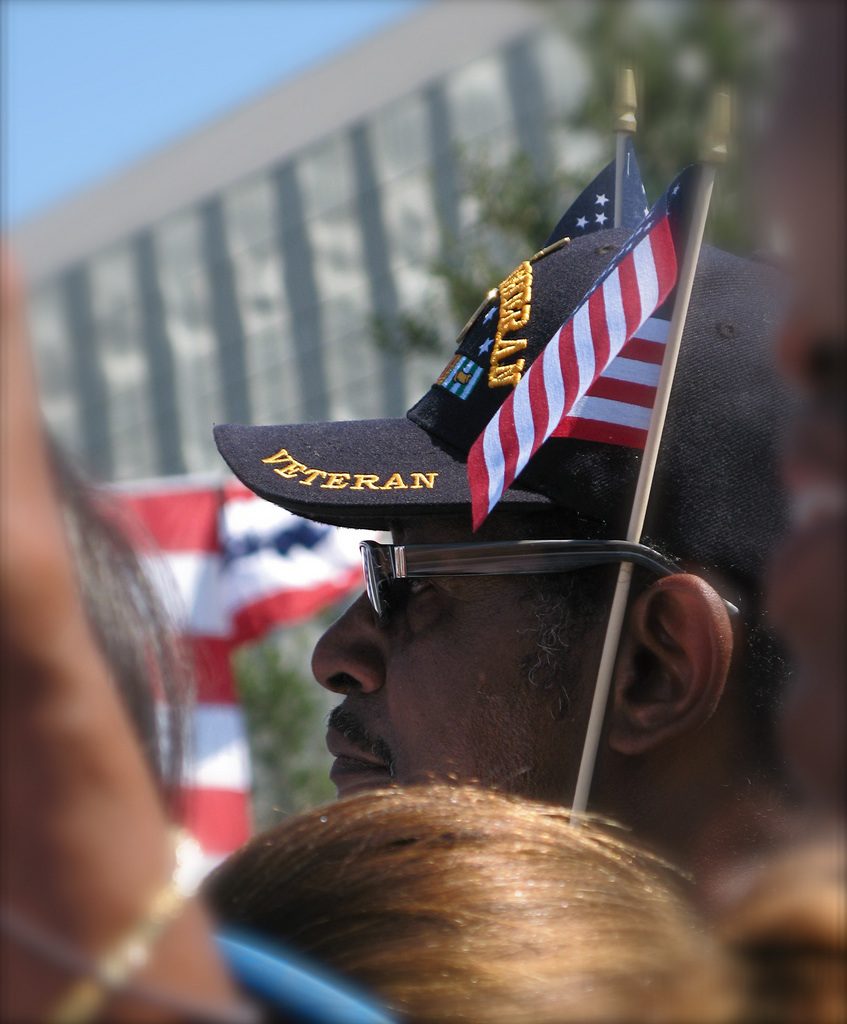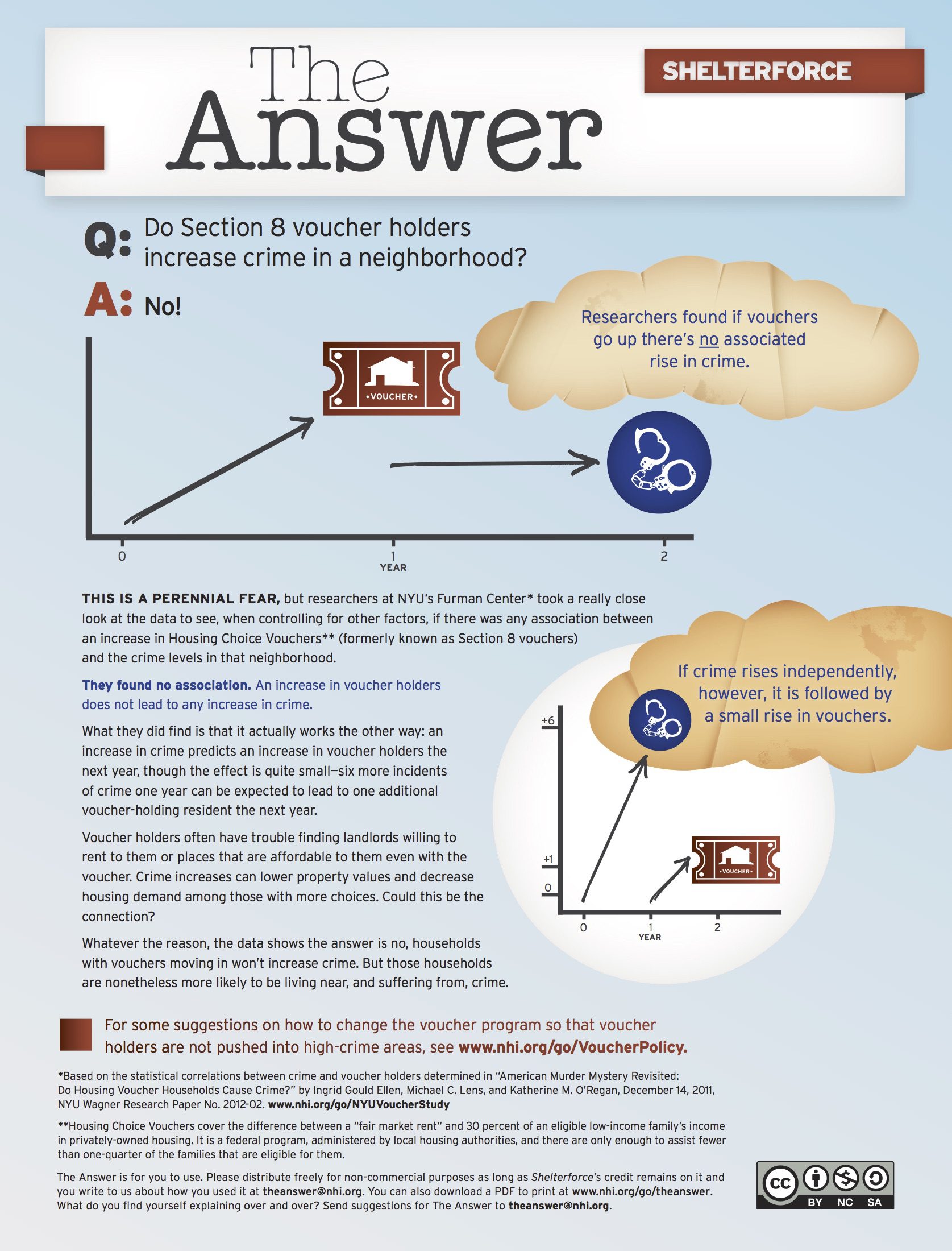When troubled homeowners walk through the door at the Northwest Side Housing Center (NWSHC), they’re often scared and trying desperately to hold on to the cornerstone of the American dream. A visit to the center, a cramped blue building in Chicago’s Northwest Side resembling a house more than an office, is often a last-ditch effort for families fighting foreclosure after efforts with their lender and lawyers fail to reach results.
They enter as homeowners asking for help, but leave as empowered community residents who aren’t afraid to confront their bank and fight for their home. Positioning itself as a one-stop shop for community engagement, educational workshops, and personal empowerment, NWSHC is able to keep homeowners involved years after they’ve received a loan modification.
Take Ernie Lukasik, a unionized actor who has spent a lifetime working in the entertainment business. He and his wife, Nancy, raised children, sent them to private school, and just under a decade ago, were new empty nesters, still working and leading a normal life. But in 2006, work began to slow, and in 2008 they realized they were headed for major trouble.
Ernie says they blew through their savings trying to stay current on their mortgage payments while navigating the difficult waters of getting a loan modification with Bank of America, their loan servicer.
“We had made this decision to move here, and we wanted to keep the home. It never occurred to us not to fight for it,” Nancy says.
After trying unsuccessfully to obtain a loan modification on their own, they found the Northwest Side Housing Center. There, Ernie says, they found out about the Housing Committee, a group of homeowners and concerned community residents organized by NWSHC to hold lenders accountable and promote solutions to the foreclosure crisis.
“When you have paid your whole life and you take pride in not being late in any bill your whole life, it’s a real stigma when all the sudden you can’t make a payment,” says Ernie. “It wasn’t until we got to [NWSHC that] we realized it wasn’t just us. Everyone we met had that same feeling, the same pressure, the same stress, the same feeling of ‘What did I do wrong? Why am I being punished?’”
Ernie says the Housing Committee planned strategies to improve how Bank of America worked with customers facing foreclosure. In March 2011, 53 Bank of America mortgage holders who had previously tried working with the company to save their homes boarded a bus to visit the Bank of America Homeowner Service Center in downtown Chicago. The group protested and chanted, “Help us stay so we can pay!” Following that action, Bank of America executives relented, and began an 18-month process of meetings and negotiations with NWSHC Housing Committee members. Ultimately, 128 (85 percent) of Bank of America cases at the NWSHC avoided foreclosure, most through loan modifications, shaving $200 to $800 per month off their original payments.
At one of the early community meetings with executives of Bank of America, Ernie Lukasik says he became an advocate for himself and his fellow homeowners. Several executives became upset at the questions the group demanded answers to, but he stood up to his own lender.
“I said, ‘If you want to talk about disappointment, take a look at every face in this room. They’re disappointed. You were bailed out, you got this. They just want help,’” he said.
Shortly after the meeting, the Lukasiks were able to get relief through the Home Affordable Modification Program.
“Our experience with NWSHC was eye opening. We really became advocates of the organization because they were so helpful. We think a lot about the people that don’t have contact with them,” Nancy Lukasik says.
Today, more than five years after he found the NWSHC, Ernie Lukasik still participates in the Housing Committee. He reaches out to homeowners door to door through the Cook County Mediation Program and advocates for other homeowners in trouble. Working with NWSHC, he has helped lead similar, successful campaigns to improve how Chase, PNC, Citi, HSBC, and Fannie Mae work with their customers facing foreclosure.
Given that its mission is to “Engage, Educate, and Empower,” it isn’t coincidental that many homeowners stay connected to NWSHC. Along with the Lukasiks, there’s Diane Reyes, a single mother who saved for years to buy her home only to have it nearly slip through her fingers after getting laid off. There’s Temitayo Ogunlesi, a highly educated immigrant who found herself back at the organization for a second time after struggling with her modified loan payment due to chronic underemployment. And there’s Henryk and Krystyna Turzanski, a Polish-speaking couple who tried unsuccessfully for four years to get a modification on their own, but received one through NWSHC and now participate in organizing to hold banks accountable.
Balancing Two Strategies
Perhaps what makes the NWSHC so effective is that it has incorporated community organizing from its founding in 2003. Using traditional grassroots-Alinsky style community organizing, NWSHC motivates residents around their self-interest into collective action. Its Housing Committee meets monthly and addresses issues such as dual communication, underwriting guidelines, and the lack of accountability at the Federal Housing Finance Authority (FHFA).
In the process, homeowners become leaders through on-the-ground, real-time learning: having skilled and focused one-on-one’s with other homeowners, hosting house meetings, and preparing other leaders to give testimonies at public events and meetings. Housing Committee chairs plan public meetings with bank executives, crafting demands based on the issues raised during gatherings with their neighbors.
Without the Housing Committee holding banks accountable, NWHSC wouldn’t be able to win as many of the real solutions to the foreclosure crisis that it does. NWSHC’s HUD-certified housing counseling, albeit streamlined and well-informed, often lacks the “teeth” needed to influence the policies, practices and decisions being made by banks who often see foreclosures as numbers rather than actual families. It is a balancing act between a traditional, service-delivery model of housing counseling and an aggressive community organizing approach.
But this symbiosis comes with its own set of challenges. For one, housing counselors who are deeply involved in the details of working with servicers and following strict guidelines for case submissions may not have the time and training needed to identify potential leaders, and may not recognize the problems and injustices in the way the servicers function. Conversely, organizers may lack the attention to detail, patience and full understanding of the guidelines that counselors need to follow and the importance of protecting private and sensitive information. These tensions must be tackled head on.
We have found that the most effective way to bring organizing and counseling together is to do just that—have the teams work side-by-side on a campaign where the end result is justice for families, and where both can build relationships with the clients that help them develop into leaders. Counselors come to see it in their self-interest to engage in the organizing campaigns because ultimately their caseloads will become more manageable and their clients’ homes will be saved. Organizers come to understand and appreciate the complexities of counseling and benefit from a counseling team that is fluidly sending clients their way to engage in organizing. When counseling and organizing work together, those facing foreclosure win.
By empowering homeowners and encouraging them to join together and stand up to the banks, NWSHC helps the entire community benefit from keeping families in their homes, schools occupied, and the tax base intact.
When to Organize
Not every difficult housing counseling case should turn into an organizing campaign. NWSHC uses a straightforward litmus test to determine when to combine the resources of housing counseling and community organizing:
- There has to be a group of at least ten homeowners that are not receiving fair and effective treatment from their loan servicer.
- The majority of these clients must agree to participate in strategy sessions, meetings with the servicer and share their story publicly as leaders.
- The issues must be solvable in a timely manner.
- The complaints against the servicer must be well documented.
- The counselors and organizers must have the capacity to see a campaign through.
The result is well planned, well executed and cohesive organizing campaigns that bring the organization’s service and organizing resources to bear on the most egregious offenses perpetrated by servicers against homeowners in foreclosure. In making this a coordinated effort between counseling and organizing, clients develop into leaders and become highly vested in the organization and in helping others navigate the storms they have weathered. Through our work, it is our goal that other families across the United States going through foreclosure won’t have to deal with the same practices that push people out of homes they desperately want to keep.






Comments